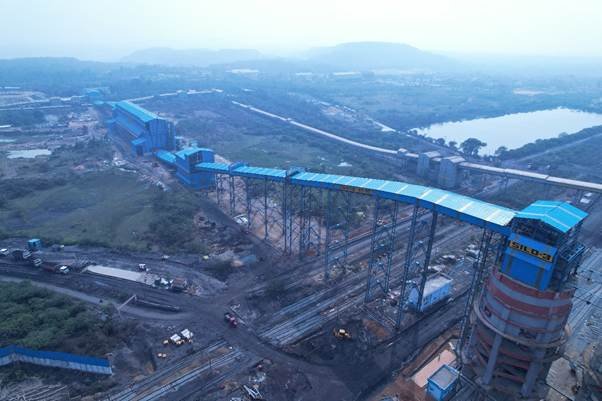Zangin says 90% of Israel’s wastewater is treated and reused
Various Danish water technologies that could be implemented in India to enhance resilience and cost-effectiveness both in urban and rural areas were discussed during a summit held on 8 Aug.
Also, parallels were drawn between Denmark’s past water management challenges and India’s current situation Søren Nørrelund Kannik-Marquardsen, Minister Counsellor, Regional Coordinator South Asia and Head of Trade & Commercial Affairs, Embassy of Denmark – New Delhi waterindia .
He shared Denmark’s experiences at the CII Water Tech Summit 2024, themed “Bridging the Water Demand – Supply Gaps: Technology, Partnerships and Collaboration”, which organised by Confederation of Indian Industry on 8 Aug.
He noted that India’s scale could drive down technology costs and underscored the critical role of water in sustainable development and the importance of international cooperation.
The innovative spirit of the Israeli water tech industry was also shared by Natasha Zangin, Counsellor, Head of Economic and Commercial Mission, Embassy of Israel – New Delhi .
She highlighted Israel’s transformation from a country with an arid climate and limited natural water resources to a global leader in water technology by investing heavily in research and innovation to ensure water security siww .
Zangin elaborated on how Israel excels in several key areas of water technology, including desalination, water recycling, smart irrigation, water management and conservation watertechcorp .
She informed summit delegates that 90% of Israel’s wastewater is treated and reused for agricultural purposes.
The need for adopting an integrated approach for promoting the reuse of water, was also underlined Nalin Kumar Srivastava, Deputy Director General, National Mission for Clean Ganga, Ministry of Jal Shakti.
“Water demand-supply gap and its management needs to be addressed at various levels and technology is a very important part of this management,” he told the summit delegates thewaterexpo .
Srivastava informed that a National Framework on reuse of water has been launched.
Taking it to the next level, the Centre is working with States to see how this national framework can be dovetailed with state specific framework of water reuse and sectors like power, railways, agriculture among others, he said.
“In this regard the power plants have been mapped to STPs so that water can be given to specific power plants for reuse.”
Adopting data driven approach is crucial to address implementation of water management plans, he emphasised, stressing that innovations in the water technology should focus on providing required solution.
In this regard the success stories across the globe can be replicated to Indian context, according to Srivastava, as he underlined the need for development of water centric approach to develop a water sensitive infrastructure.
B2B sessions with Israeli companies were also conducted during the event that involved in-depth discussions, exploring business opportunities, and forging new partnerships to advance shared goals in water security and technology such as water control solutions, wastewater treatment, new generation IoT and SCADA innovations, and innovative urban water management.
While augmenting supply has been the focus key area, in the current context, demand management is something we need to move forward, Sarang Lakhanee, Executive Director, Vishvaraj Environment Pvt Ltd .
Highlighting the successful implementation of Nagpur 24/7 water supply project under a PPP model, he shared that even after a decade of operation, the water supply has improved to the extent of providing sufficient water for the entire population of Nagpur.
Lakhanee called for focus on four P’s: People, Public, Private and Partnership with keeping people at the centre helped in maintaining the sustainability of resources.
While technology has the potential to revolutionise water management it also requires concerted efforts of government, private companies, added Indraneel Dutt, Chief Executive Officer, Ion Exchange (India) Limited.
He stressed that bridging the water demand supply gaps requires a multifaceted approach, involving technology, collaboration and partnerships. Fiinews.com










